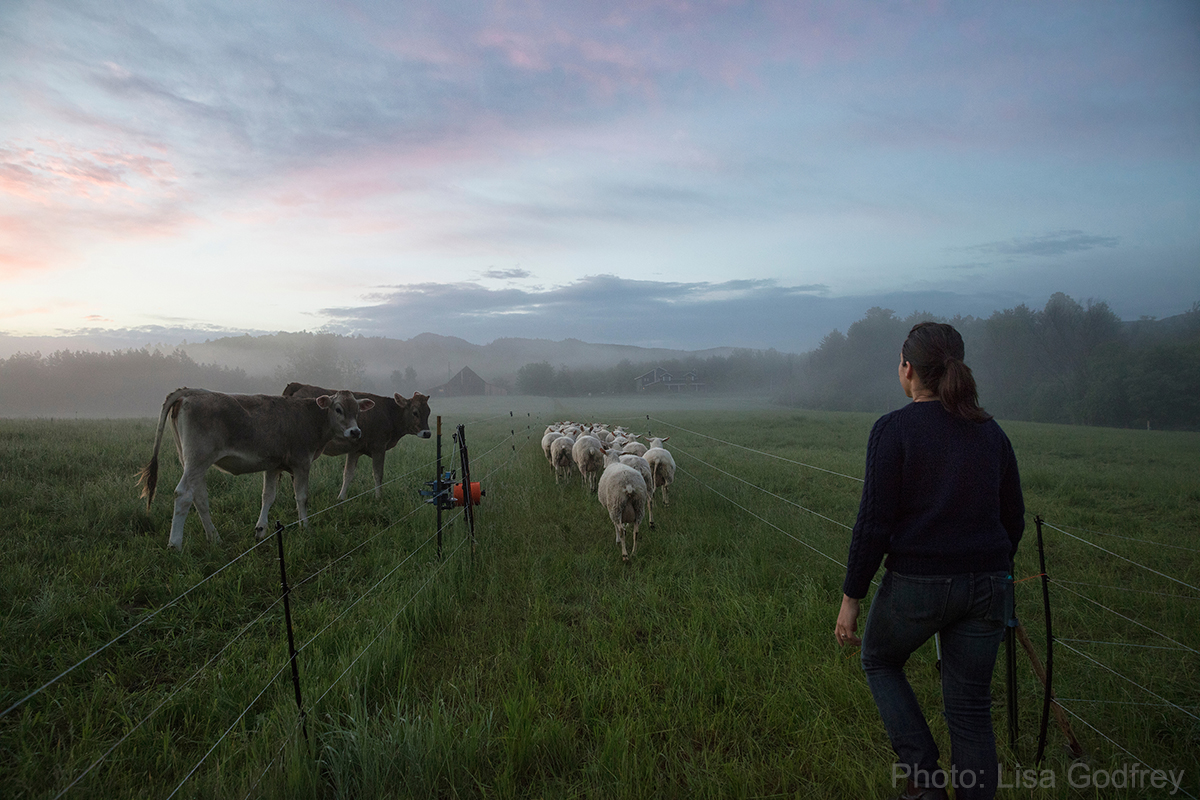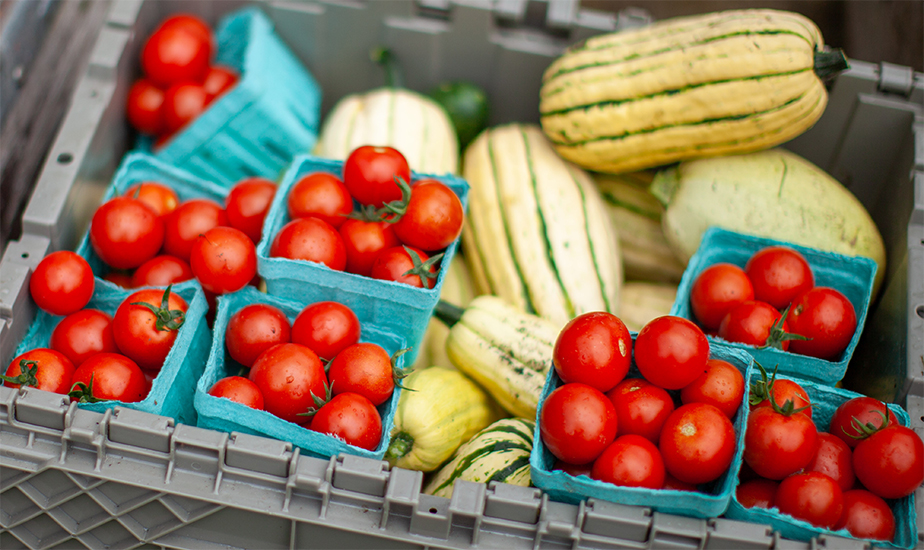
Cultivating Legislation: Agricultural Updates from the State Capitol
By: Dillon Klepetar – Adirondack Council Farm Advocate
Friday, February 11, 2022
There has been a flurry of activity coming from Albany recently. The ascension of Kathy Hochul as New York State’s new governor has catalyzed a fresh look at agriculture’s importance in securing food and a safe environment for New Yorkers—not just within the executive departments but in both chambers of the legislature. Farm operations in the Adirondack Park and across the state have an important role to play in either creating or compromising clean water and a stable climate for the future of the region and indeed the world. A focus on agriculture in the Governor’s State of the State Address signals that decision-makers are increasingly aware of the fundamental role agriculture must play in protecting and improving our natural resources.
Legislation Impacting the Adirondacks
Essex Farm Institute (EFI) assists the Adirondack Council’s Government Relations team, based in Albany, track legislation relevant to the Park’s some 1200 working farms and the landscapes they utilize. One of the more valuable pieces in the 2021 legislative session was a bill introduced by Senator Michelle Hinchey, D-Saugerties, dubbed as the “Soil Health and Climate Resiliency” bill. EFI sent the Governor a letter urging her to sign the bill into law. An excerpt of the letter follows:
“When arable land is managed with a focus on soil health, the science of positive feedback takes over: causing more carbon to be stored below ground level, less agricultural runoff to be released into our rivers and lakes, and creates more opportunities for future farmland production. All this amounts to healthy ecosystems...capable of producing affordable food for our state in the decades to come...The Adirondack Council encourages you to sign this bill into law for the farmers, and in the spirit of our collective future.”
Less than a week after our letter was submitted, the bill was signed into law by Governor Hochul.

Soil Health and Climate Resiliency Act
The new law recognizes that healthy soils are vital to productive farming, food security, natural resource protection, and long-term climate change mitigation. It will be quite impactful by creating a roadmap for simultaneously protecting long-term soil fertility while limiting the atmospheric release of greenhouse gases caused by conventional tillage techniques. The farming community of the Adirondacks is home to a variety of operations, both in scale and diversity. EFI will take an active role advising farmers on how to take advantage of the “roadmap” created by the new law. For example, EFI will advise agricultural operations of all sizes and types on how to convert more acreage into low-till and no-till practices; address financial considerations for riparian buffer enhancements; assist in developing Nutrient Waste Management Plans that meter the usage and timing of fertilizer application; and, more generally, create working lands that have a net-sequestration of carbon dioxide. The new law empowers agencies like Soil and Water Districts to use their full financial and technical resources to assist farmers in achieving these aims. EFI sees a prominent role as a “bridge” between the agencies tasked with supporting soil health and climate resilience and the farmers themselves in the Park.
Easier to Find Local Farms
Another bill signed into law in 2021 was Senate bill 6330A which enjoyed broad bipartisan support. This law prioritizes economic goals for the state’s farming sector by making it more visible to the general public. The Department of Agriculture and Markets, in partnership with the Department of Economic Development and the Urban Development Corporation, will now be required to create a searchable directory of all farms within the state. Any measure that channels consumers towards local farms instead of global food commodities is a positive sign. However, changing consumer habits toward more authentically local products will have outsized impacts in the Adirondacks, where most food is imported from outside the state. The database will greatly help those operations that have direct-to-consumer sales platforms. Moreover, it is an encouraging sign that the state’s political majority would like to see New Yorkers eating locally instead of from large agribusinesses that could jeopardize the climate in irreversible ways. Any measure that helps increase the economic viability of New York’s farms is positive, but the database is likely to have an especially positive impact on small to medium-sized farms that do not sell to commodity consolidators.

The guidelines also implicitly direct Ag & Markets to focus on transparency and public awareness of farming in the state. Unlike the Taste NY and I Love NY campaigns, the database will feature actual farms that produce food instead of marketing that use “local” or “produced in New York” to direct consumer traffic towards products that are simply packaged or processed in the state (e.g. coffee, chocolate or candy corn). Doing so will help consumers focus their dollars on raw and processed foods that contribute towards the economic engine that agricultural businesses create in their local communities. The platform will eventually create:
“a publicly available searchable database of New York state farms and...shall list the products available for purchase and contact information for each farm, unless a farm opts out of being included in the database by notifying the department of such option. The department shall provide easily accessible electronic access to the database on the department's website and shall update the database at least every two years”
A Good Sign
These actions signal a growing consensus among policymakers and New Yorkers that working lands are tremendously important for remedying a number of related crises. That is momentum that EFI and its partners can build on to push for more tangible efforts to bolster the local economies and healthy environment that sustainable farming can create. We applaud those legislators who understand their vital role in creating the economic conditions to make this reality possible. And we also applaud those farmers who tend to the land as stewards so that the rest of us find the Adirondacks a beautiful (and indeed delicious) place to live.
 Dillon Klepetar joined the Adirondack Council staff in September 2021. As the Farm Advocate, he serves as the project leader for the Essex Farm Institute, which collaborates with farmers to pursue sustainable projects on working lands. He also monitors and advocates for agricultural policies that promote the ecological integrity of the Park at the state and local levels. After studying public policy and working in the transportation and conservation nonprofit sectors, Dillon spent the past 10 years working on sustainability on his own farm. Growing up in the southern Adirondacks and his farm stewardship experience provide Dillon has a passion for wildlands and an appreciation for sound land management. He enjoys farming (obviously), fly fishing for native Brookies, bow hunting, and making biodiesel..
Dillon Klepetar joined the Adirondack Council staff in September 2021. As the Farm Advocate, he serves as the project leader for the Essex Farm Institute, which collaborates with farmers to pursue sustainable projects on working lands. He also monitors and advocates for agricultural policies that promote the ecological integrity of the Park at the state and local levels. After studying public policy and working in the transportation and conservation nonprofit sectors, Dillon spent the past 10 years working on sustainability on his own farm. Growing up in the southern Adirondacks and his farm stewardship experience provide Dillon has a passion for wildlands and an appreciation for sound land management. He enjoys farming (obviously), fly fishing for native Brookies, bow hunting, and making biodiesel..




